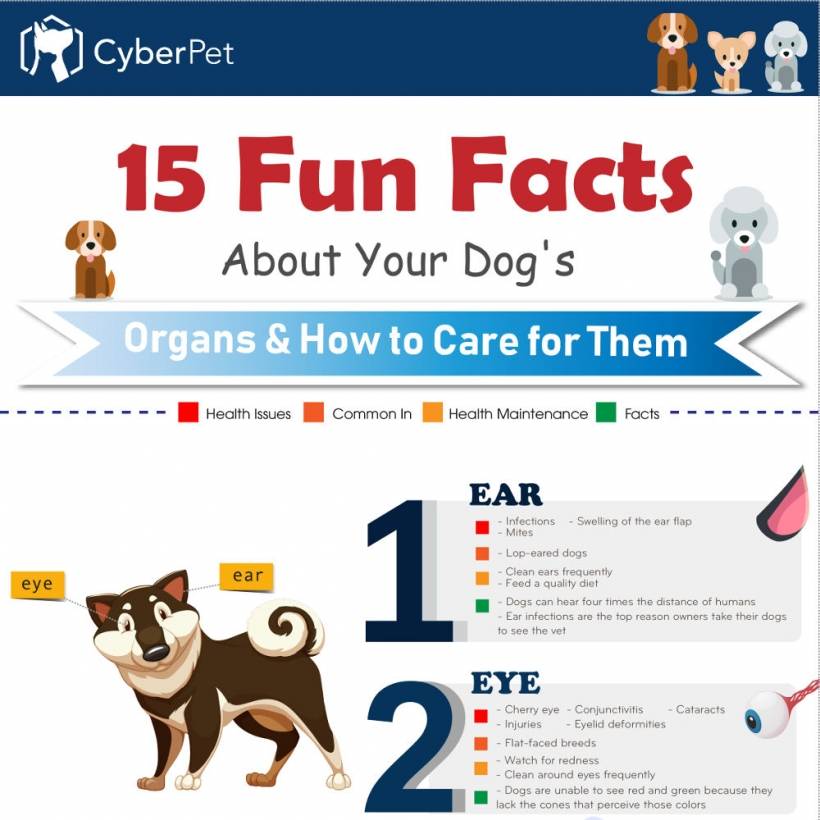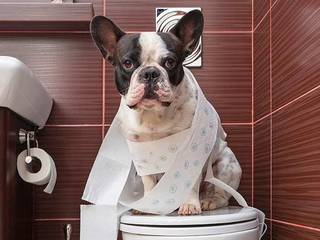Like humans, dogs can suffer from a variety of health problems ranging from intestinal parasites, skin disease and ear infections, eye problems, digestive upset, and dental disease.
Knowing a little bit about your dog’s organs and how they function can help you spot those problems. Keep reading the article!
1. Eyes
Like people, dogs can suffer from a range of eye problems. Common eye problems in dogs are cataracts, injuries, conjunctivitis, and eyelid deformities.
Watch for any redness, swelling, discharge, discomfort, itching, cloudiness or dryness and go to the vet at the first sign of a problem.
To avoid some of these dog eye problems, special care should be taken to keep hair and other debris from their eyes.
While eye problems in dogs are prevalent in our precious pooches, the good news is that treatment is not only always effective – but affordable too.
2. Mouth
A dog’s mouth is much more than a woofer for various vocalizations — it’s actually a barometer of his overall well-being.
Dog mouth problems are surprisingly common and can be caused by anything from abrasions, infection, or chewing on inappropriate items, to a genetic predisposition for oral cancer.
Chewing is not bad. It is a normal and necessary activity for a dog. Chewing only becomes a problem when your dog chews things you don't want him to chew.
When you are away from home or are too busy to watch your dog, confine him in a place where he can't get into trouble. For some dogs, this can be a small room. For many, this means a dog crate. When confined, your dog will be safe and will not be able to get into anything he shouldn't.
If you have a puppy, plan to train him by a crate until he is at least one year old to get through the worst of the teething periods.
3. Liver
The liver is responsible for many things. Liver disease is listed in the top five causes of deaths in senior dogs. This statistic may be because liver damage is difficult to determine. Why? Because many of the symptoms are similar to other issues affecting your dog.
Be sure to take your dogs to the vet if they have any of these signs: vomiting and diarrhea, weight loss, jaundice (yellowing eyes, ears, or gums)
4. Kidney
Much like the liver, the kidney is prone to damage from toxins and medications. This kind of damage can lead to kidney disease and even kidney failure in dogs. Kidney disease is classified in two ways; acute and chronic.
Antifreeze is one of the most common toxins that causes kidney failure in dogs.
When the kidneys are no longer able to filter out toxins from your dog’s bloodstream, the kidneys go into failure. It means the kidneys have stopped working altogether.
Can kidney disease in dogs be prevented?
A balanced, low in fat, species-appropriate diet will supply your pet with the fundamental nutrients needed for their body, which will give your dog the best chance of staying healthy.
Always take them to your vet for an annual health check to ensure any signs of disease can be spotted as soon as possible.
A Happy and Healthy Dog
Keeping your dog healthy will allow them to live a longer life with you, happy together.
Check out the article 15 Interesting Facts About Your Dog’s Organs by Leo Wilson to discover more information about taking care of your dog’s body and organs!






